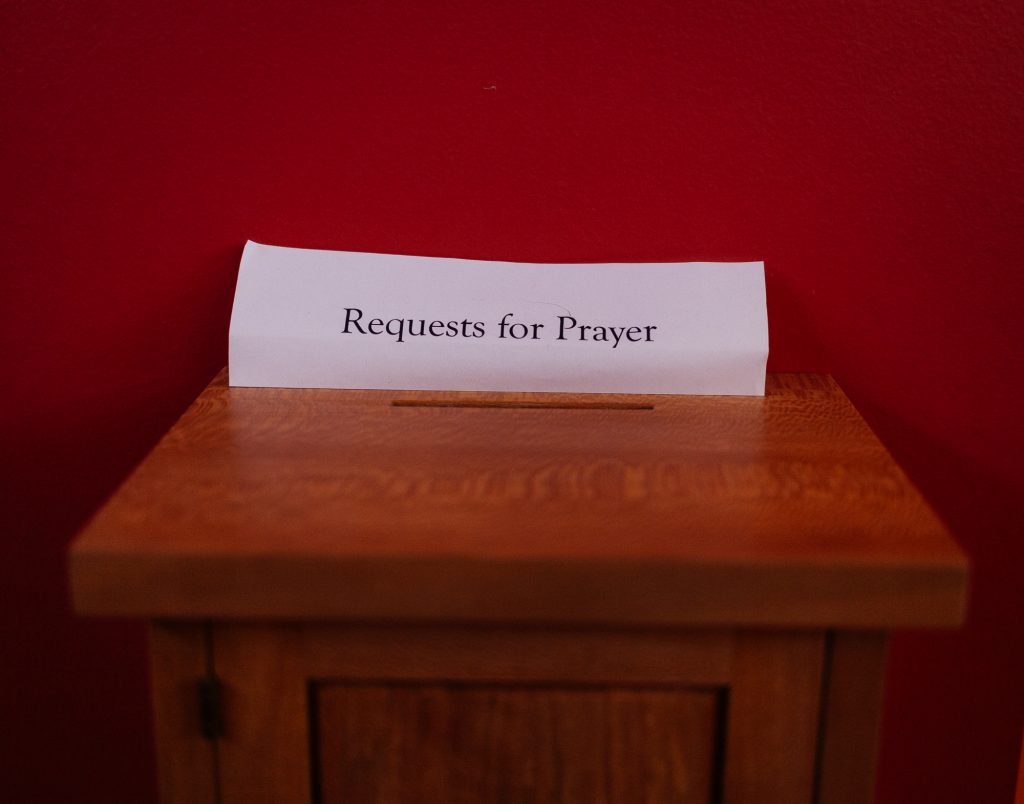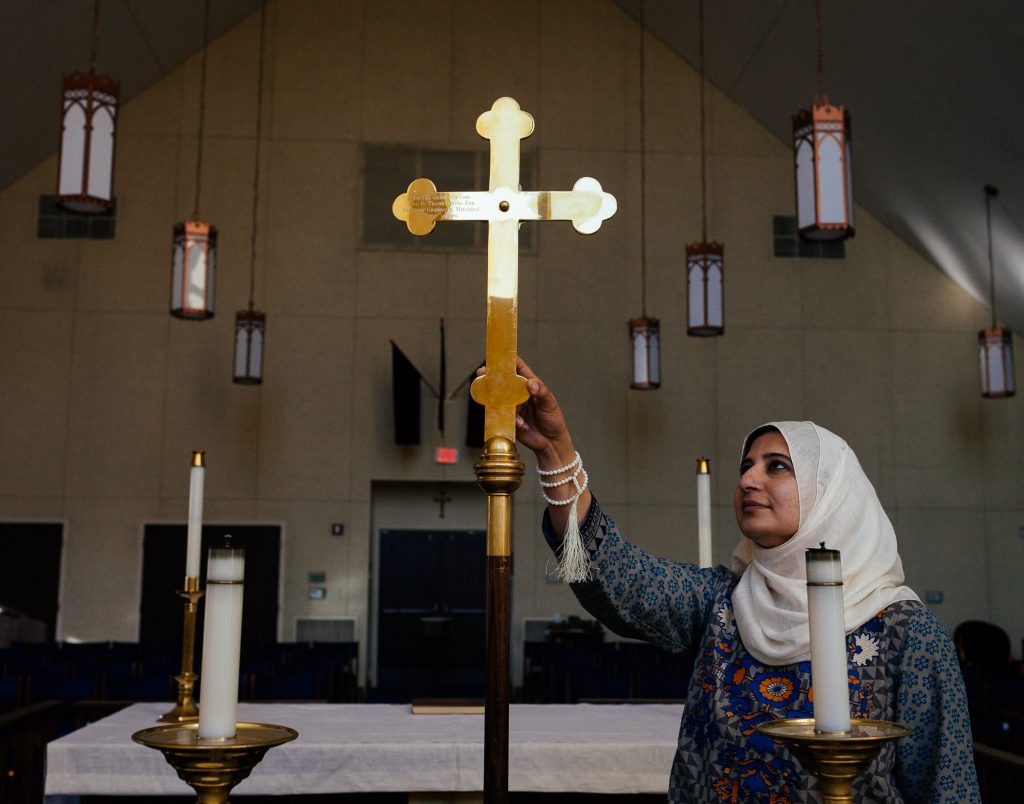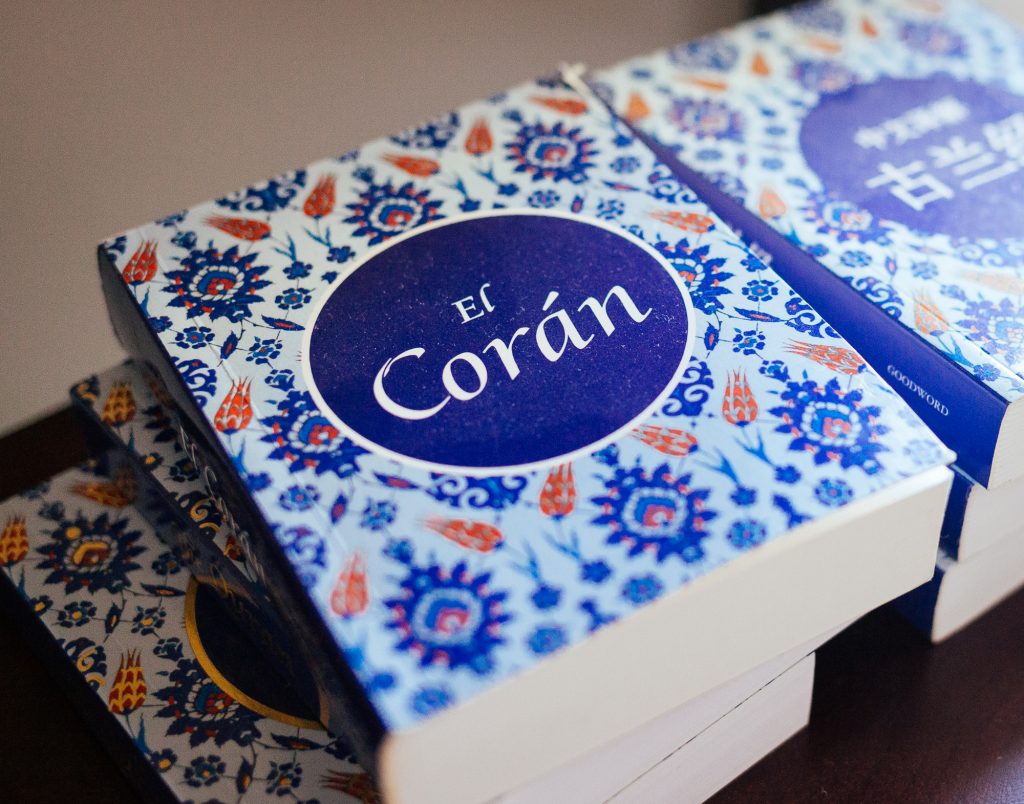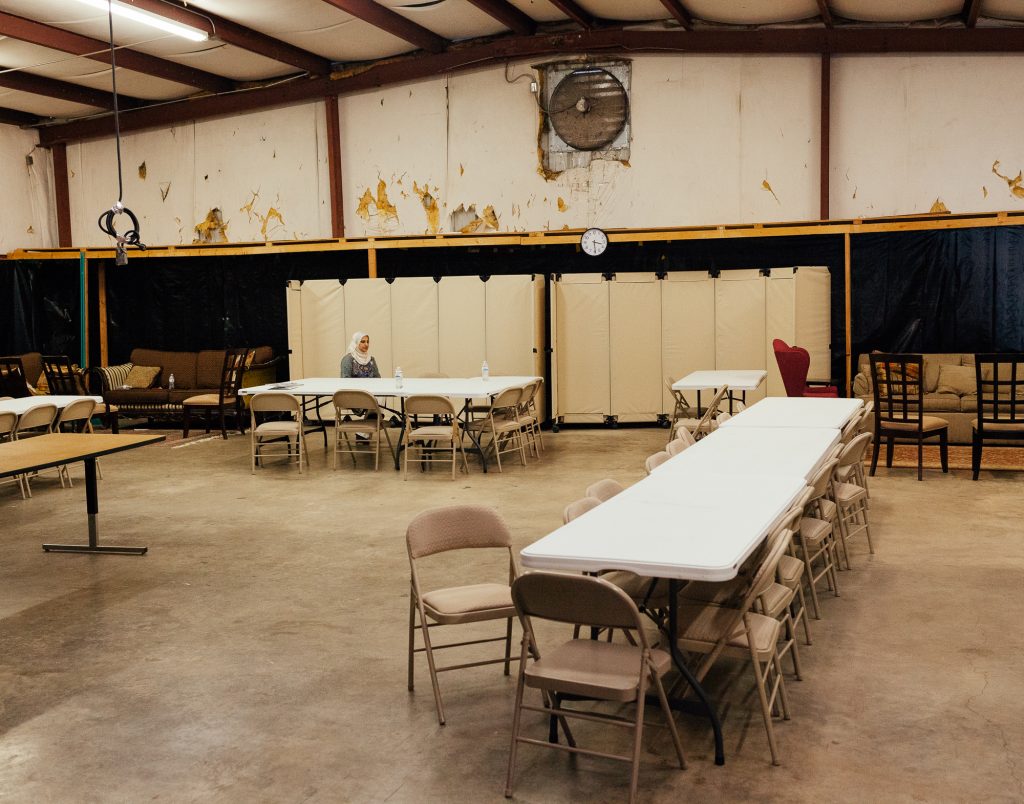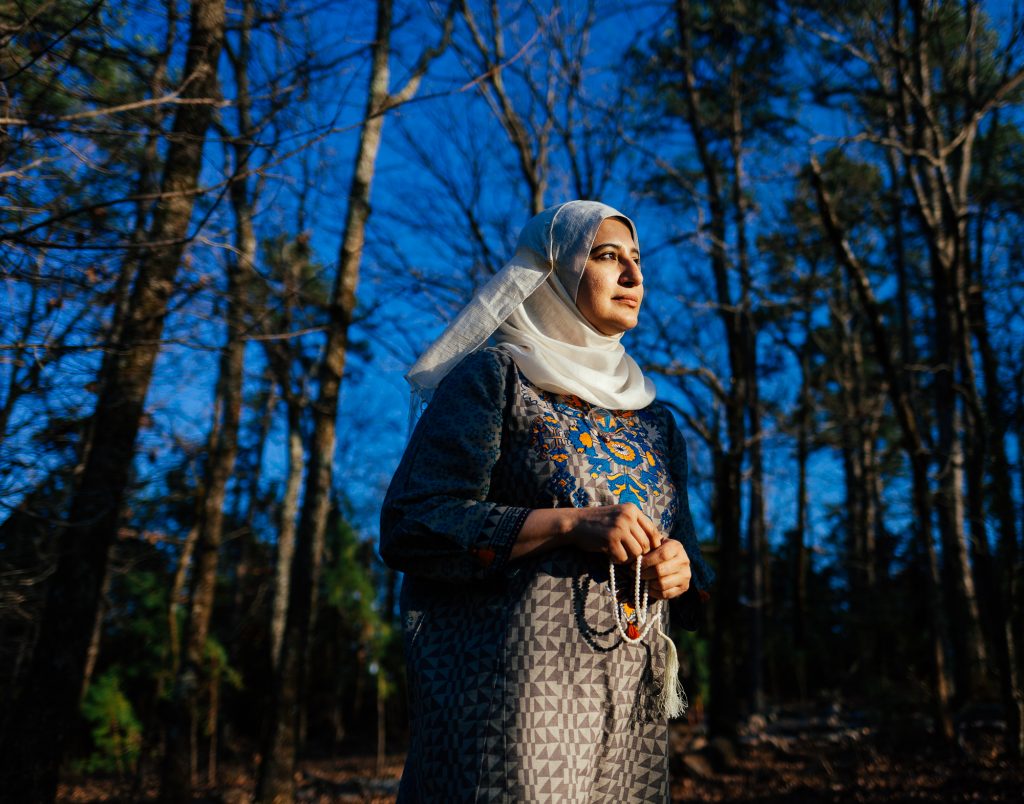
Childhood
Sophia remembers a happy childhood in an upper-middle-class family in Lahore, the capital of the Pakistani province of Punjab. She was as privileged as could be – for a girl.
“Pakistan is still a very traditional patriarchal culture, and there is only so much a girl can do. My family allowed me a lot, but there were still very strict boundaries.”
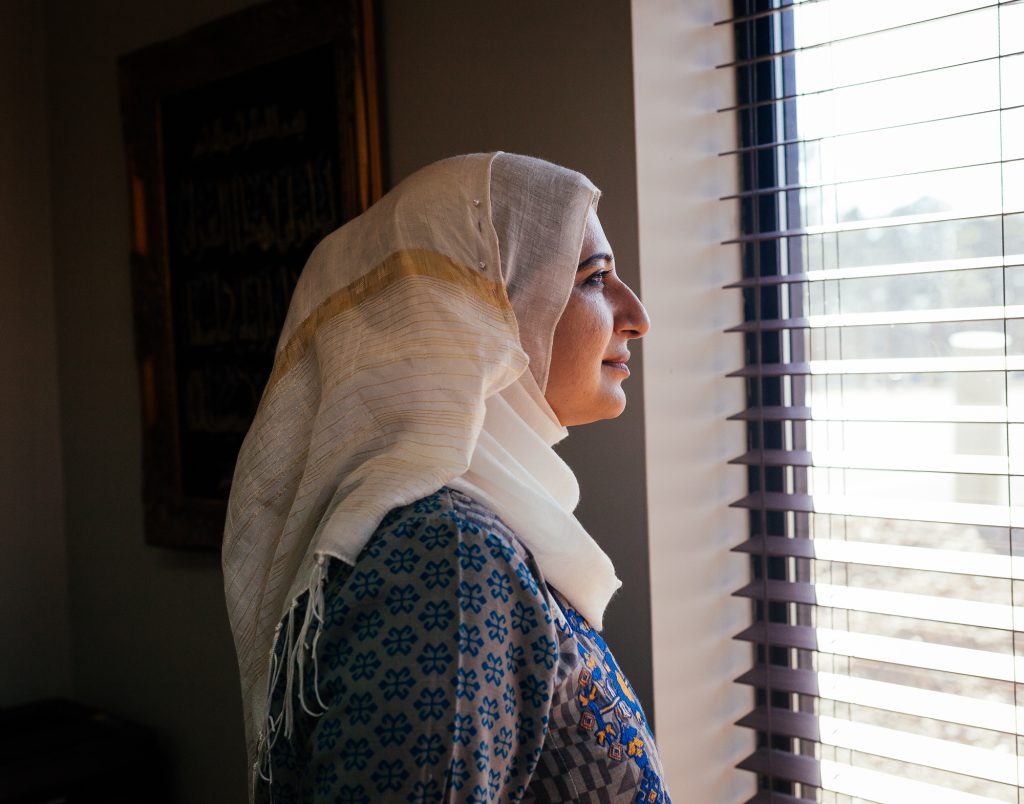
Intellectual Pursuits
The men in Sophia’s family had a long tradition of coming to the United States for higher education, and Sophia wanted to study in America too.
“I could see there was a lot more equality and freedom for women in the United States, and they could pursue intellectual pursuits with fewer barriers than in Pakistan.”
Sophia completed her bachelor’s degree in Pakistan. She started looking at foreign universities, but she knew her father wouldn’t let her go if she didn’t get married first. She had an arranged marriage to a man who was already going to America to do a Ph.D. Together, in 1994, at age 20, Sophia and her husband went to Penn State. They then moved to Utah to continue studying. At the University of Utah, Sophia became the school’s first-ever female Muslim valedictorian.
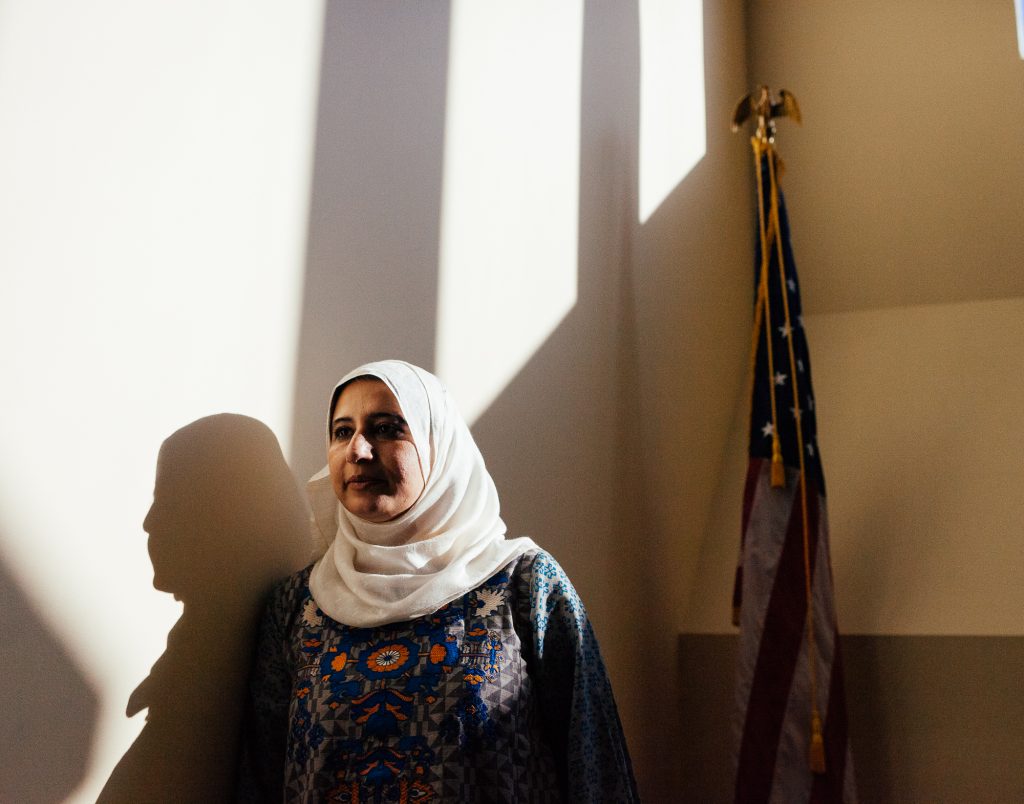
Children
Sophia had two children and became active at their school and in local organizations. She was a full-time professional volunteer and very happy.
“I was in awe of all the opportunities we had here. The ability to do whatever you wanted to do. If you really work hard and struggle, there are no barriers in America. I still believe that. You can achieve anything. The opportunity is there for everybody – it just depends how badly you want it.” (audio below)
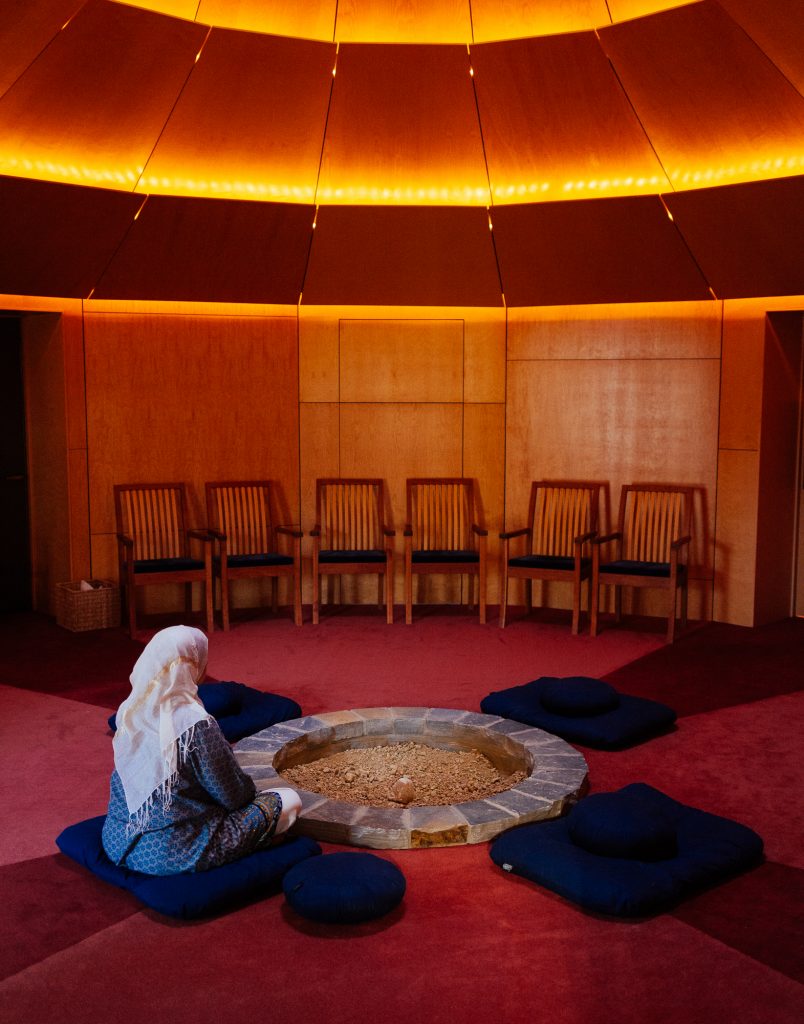
Above: Sophia inside the Arkansas House of Prayer, an interfaith haven for silent contemplation.
September 11th
“My life really changed after 9/11.”
Sophia still remembers the way she felt when she heard on TV that Muslims were responsible for 9/11 – that Muslims hate American freedoms. She asked herself,
“Is my faith really out there to usurp others’ freedoms?”
After 9/11, some of her friends decided not to wear their hijabs when they traveled, out of fear of discrimination. Sophia used to teach Sunday School at the local mosque in Utah and would only wear a headscarf when she went there. She remembers her husband asking her not to wear it anymore.
Faith
Before 9/11, religion was a small part of Sophia’s life. After the tragedy, she found herself on a spiritual journey to learn about her faith. Everything she learned growing up in Pakistan had cultural elements of patriarchy, which she knew was not her faith. Sophia also knew that what they were saying on TV about Muslims wasn’t representative of her faith either.
In 2010 Sophia started wearing a headscarf every day despite her husband trying to convince her otherwise.
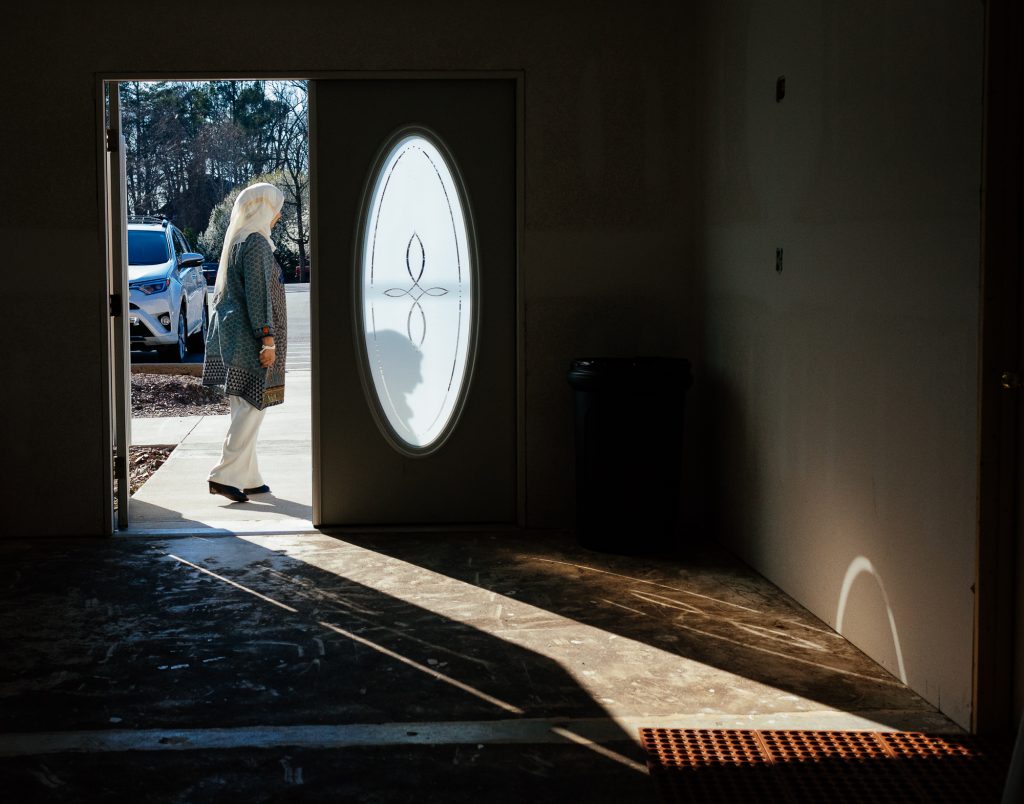
Little Rock
Sophia and her husband moved the family to Little Rock, Arkansas, in 2011 so he could work at the university, and Sophia got into a master’s program. Sophia is an economist and strategic planner by profession. While working as a consultant in her field, she never stopped getting involved with passion projects on the side.
In Arkansas, Sophia found herself doing less and less consultant work and more and more interfaith work. She wanted to help those around her understand Muslims better.
Interfaith Center
In 2012, an Episcopal Church in Little Rock invited Sophia to help lead the Interfaith Center. It was perfect timing. The goal of the center is to help reduce fear about different world religions, promote cross-cultural learning, and create a more inclusive, harmonious, and pluralistic culture in Arkansas.
“We want to move from diversity to pluralism. Diversity means people from different faith and race backgrounds live in the same community. It could be good, or it could be bad. However, if diverse communities do not engage with each other, it could be toxic. Pluralism is when diverse communities are actively engaging with each other with a commitment to the common good. They communicate and create an inclusive community where every voice is heard, and there are no ‘diverse slums’ in the community.” (audio below)
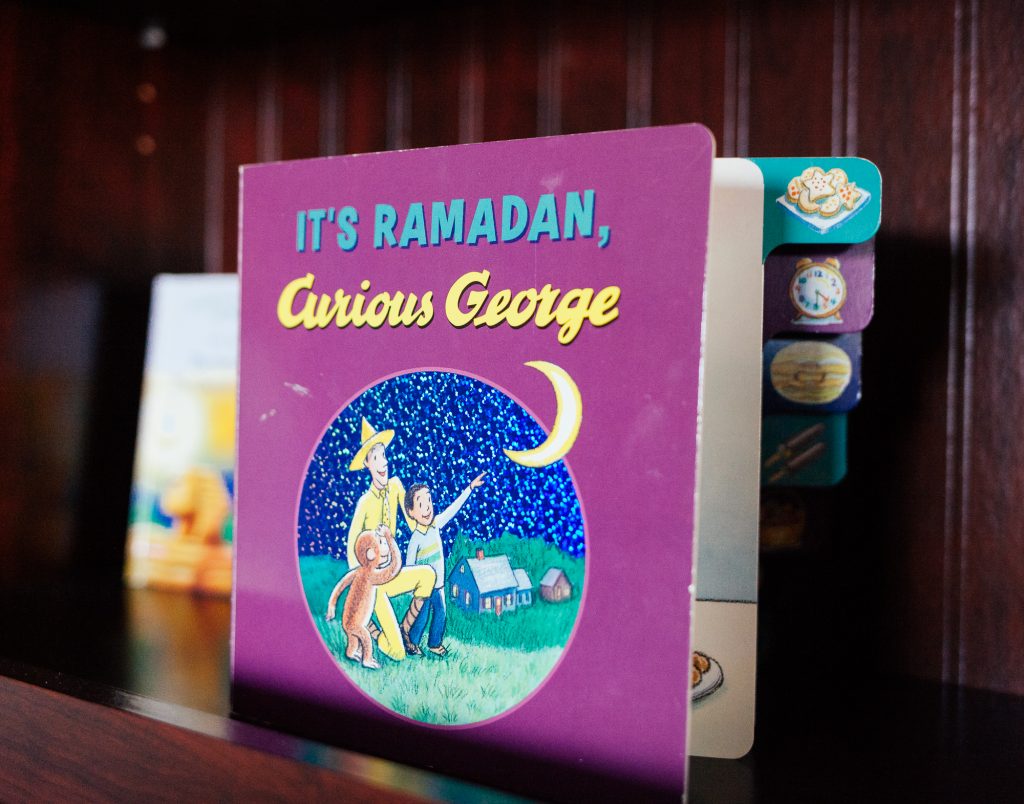
Internalized Oppression
One night, around the dinner table, Sophia’s daughter announced that classmates at school had called her brother a terrorist. Her son said,
“Mom, just ignore it – it’s no big deal. Everyone thinks Muslims are terrorists.”
Her daughter told Sophia she had taken care of the Hindu boy by insulting him back. Her daughter was proud, but Sophia was mortified. Sophia’s son was internalizing this oppression, and her daughter was turning into a bully! (audio below)
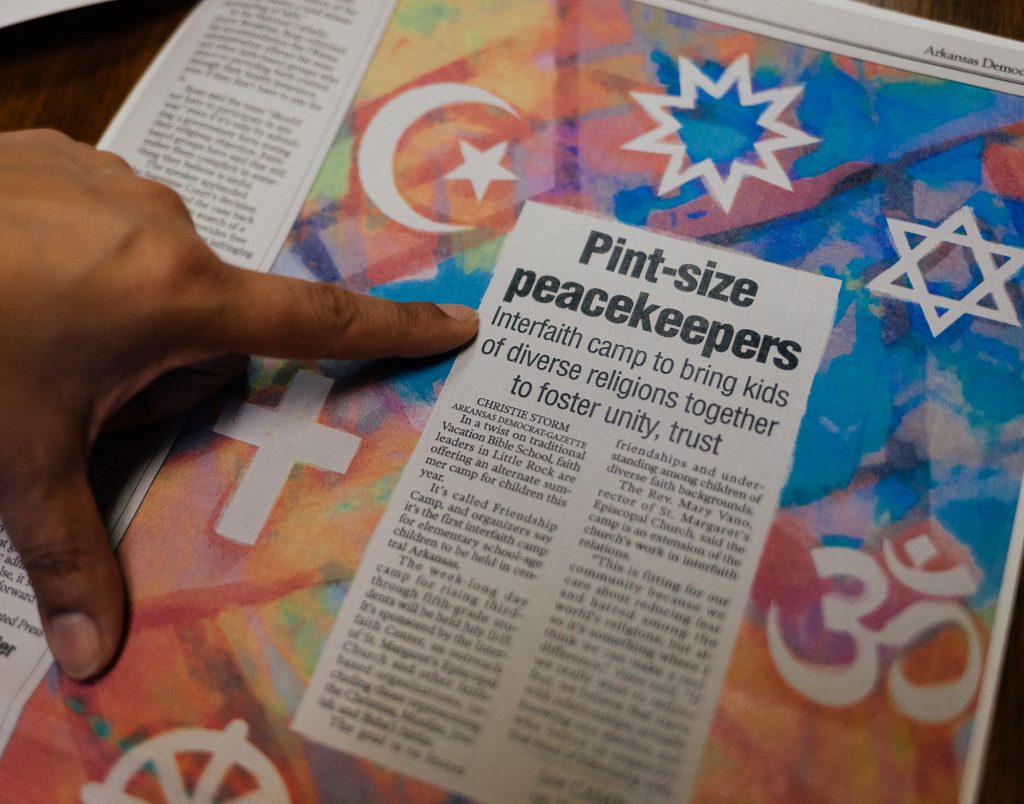
Service
This incident at the dinner table inspired Sophia’s first initiative – an interfaith youth group. The idea is to encourage dialogue as the youth from different faith backgrounds complete service projects together. Both of Sophia’s children were members of the group.
“The goal is to give these youth the communication tools that my children lacked that night at the dinner table, and some of our politicians still lack.”
The Interfaith Center has also created an interfaith supper club called “Common Table,” where people of different faiths share a delicious meal. There’s also a weeklong Interfaith Summer Camp for elementary students, which is the first of its kind in the USA. The Center also hosts interfaith prayer services where people of all different faiths come and pray together in their own way.
“The whole idea is to create platforms where people can come engage with a purpose in mind and commit towards the common good. That could be making sure a neighborhood park is safe, or children are safe in school. People of different faiths need to come together for a common purpose.” (audio below)
Assumptions
Sophia is aware of how many people don’t expect her to be in the spaces she’s in. At work, when she was warming her lunch in the cafeteria, a new congregation member came in, saw Sophia, and seemed a little taken aback.
“He asked me, ‘Can I help you?’ I started laughing a bit and replied, ‘No, I’m fine – I’m right at home. May I help you?’ We have these mental barriers we have created about who belongs where, and they are becoming more distinct and harsh since this past election – where Muslims belong, where Christians belong. If we see a Christian in a mosque and we say what are you doing here – that needs to change in America. Our public spaces need to be more inclusive. That’s my hope, and I will continue working at it until the last day of my life.” (audio below)
Her Mosque
When Sophia’s family arrived in Little Rock in 2011, the town only had one mosque. She found it to be too “mainstream” and a “little conservative.” Sophia, a Sufi, dreamed of opening a more inclusive, open-minded, and progressive mosque in Little Rock. She wanted to create a welcoming and non-judgemental space for all types of Muslims, as well as non-Muslims.
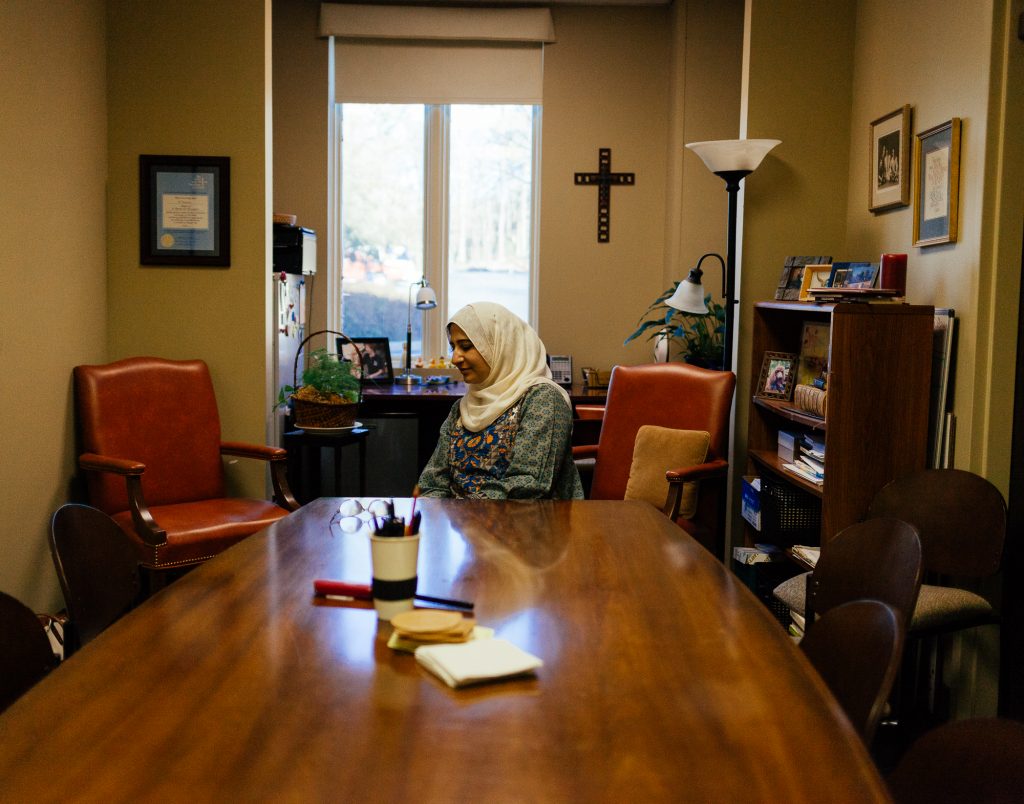
They organized the building of Sophia’s mosque at her church For a year, the planning committee met there every single Sunday. The interfaith community has been key in helping her create this mosque.
In 2016 Sophia bought the property and embarked on this lifelong project. There is still lots of work to be done (like fixing the hole in the roof pictured above).
“God willed it to happen. There was a need for a mosque like this in Arkansas.”
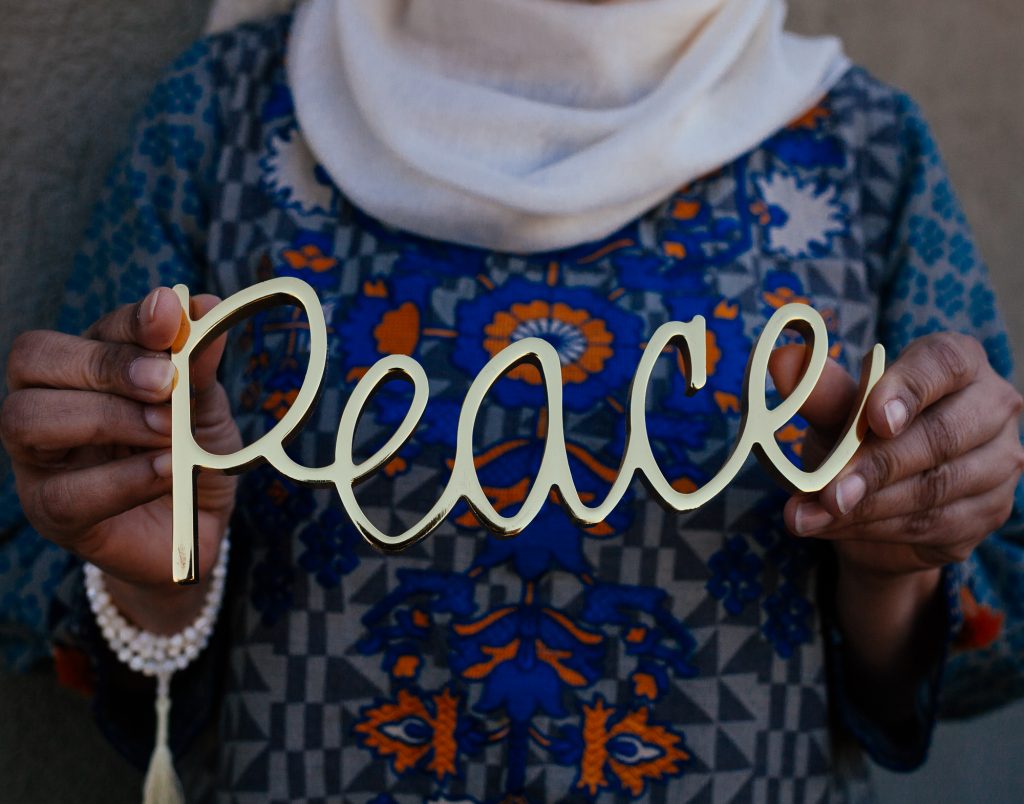
2016
Like 2001, the year 2016 had a profound impact on Sophia’s family. The night of the presidential election, Sophia’s son called and asked her not to go out wearing her headscarf. (audio below)
“Fear is a very real part of Muslims’ lives. They do not feel safe when their wives, mothers or daughters wear scarves and go out in public spaces.”
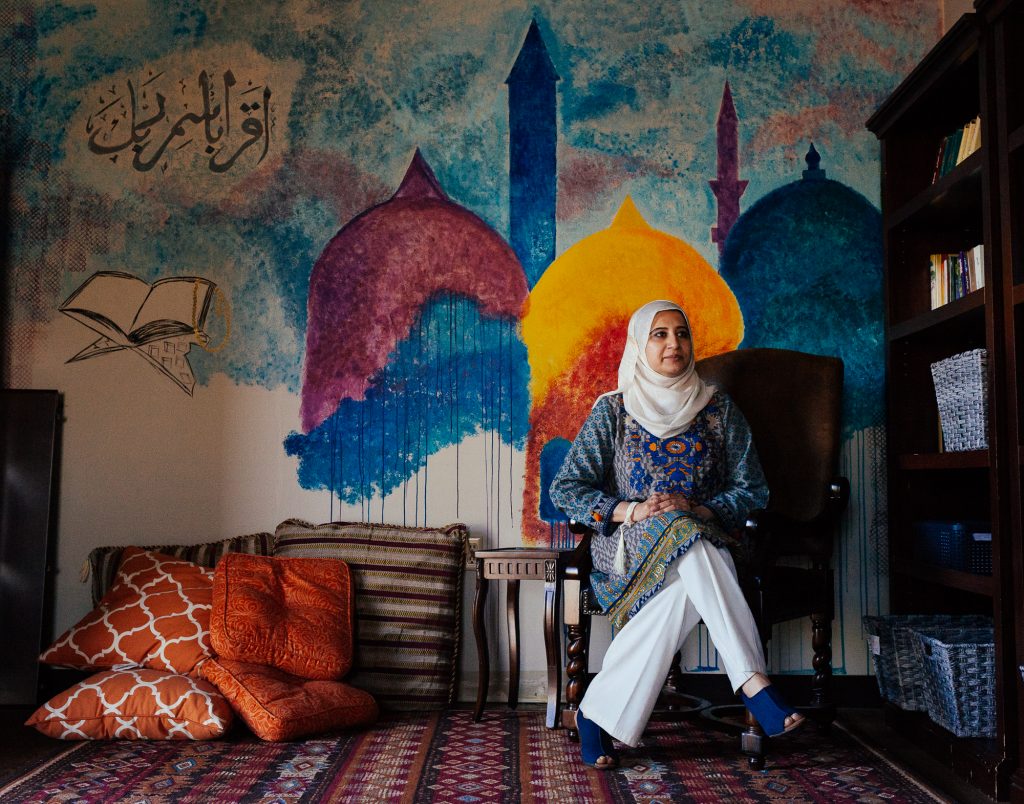
“The founders of America came here for refuge from religious persecution, so facing religious persecution in America is against basic American ideals. I think I have a responsibility to protect the freedoms I have enjoyed – and protect them for my children.”
Challenges
A lot has happened to the Muslim community since she moved to Arkansas. Sophia will never forget the truck that pulled up outside the other mosque in Little Rock, displaying pictures of a bleeding Jesus on the cross. The people in the vehicle were yelling at them to “Go home!”.
“Safety is a big concern for Muslims. We are at a major intersection here. My congregation asks me if we can put a US flag outside, and can you make sure there is security here because people don’t feel safe? Can you put a fence around here? No, I am never going to put a fence around here and tell the neighbors that we are different from you and need to protect ourselves from you. We are going to remain open. The doors will be open, but yes, we will put a flag out there, so people know we are Americans.”
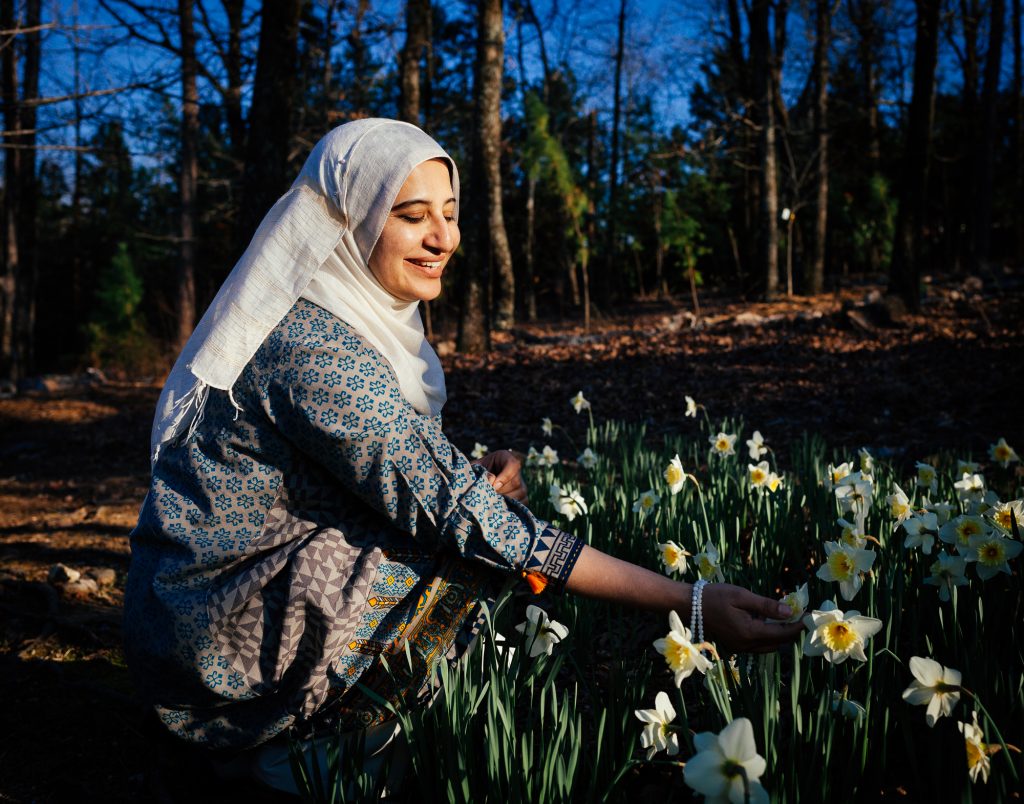
Sophia never expected this to be her path – becoming an interfaith leader. She would never have dreamt of opening a mosque, emphasizing how “Women don’t lead mosques in Islam!”
“I think by nature I was always a rebellious person. It was in my nature to always challenge. I was not happy to see gender-differentials in my society.”
Today, Sophia’s children are attending university, and she starts her days working at the church and then finishes them working at the mosque she built.
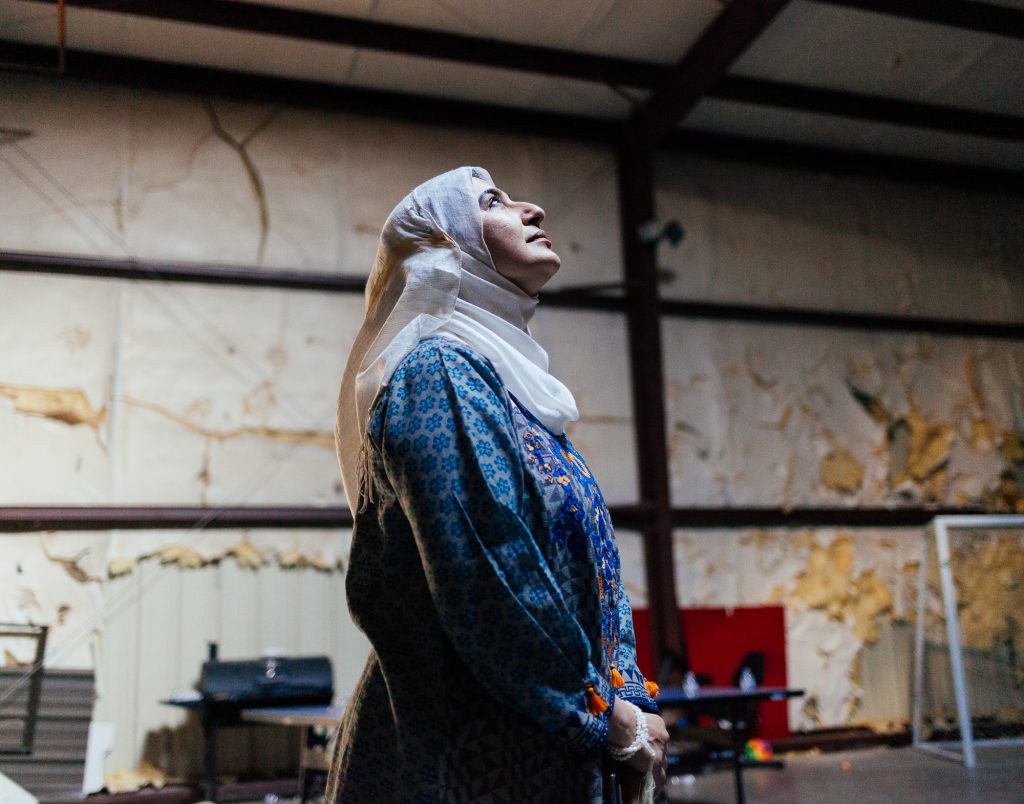
Welcome in America
The director of an independent film about a young Syrian girl who goes to Little Rock Central High School asked Sophia to play the mayor of Little Rock in her movie. Sophia rejected the offer at first saying,
“You can never have a scarf-wearing mayor in Arkansas!”
In the end, she took the role of the mayor in the film.
Sophia continues her work of promoting pluralism, trying to help create a future where everyone is not only welcome in her mosque, but also welcome in America.
#FINDINGAMERICAN
To receive updates on the book release and exhibition of “Finding American: Stories of Immigration from all 50 States” please subscribe here. This project is a labor of love and passion. If you would like to support its continuation, it would be greatly appreciated!
© Photos and text by Colin Boyd Shafer | Edited by Janice May & Kate Kamo McHugh. Quotes are edited for clarity and brevity.


